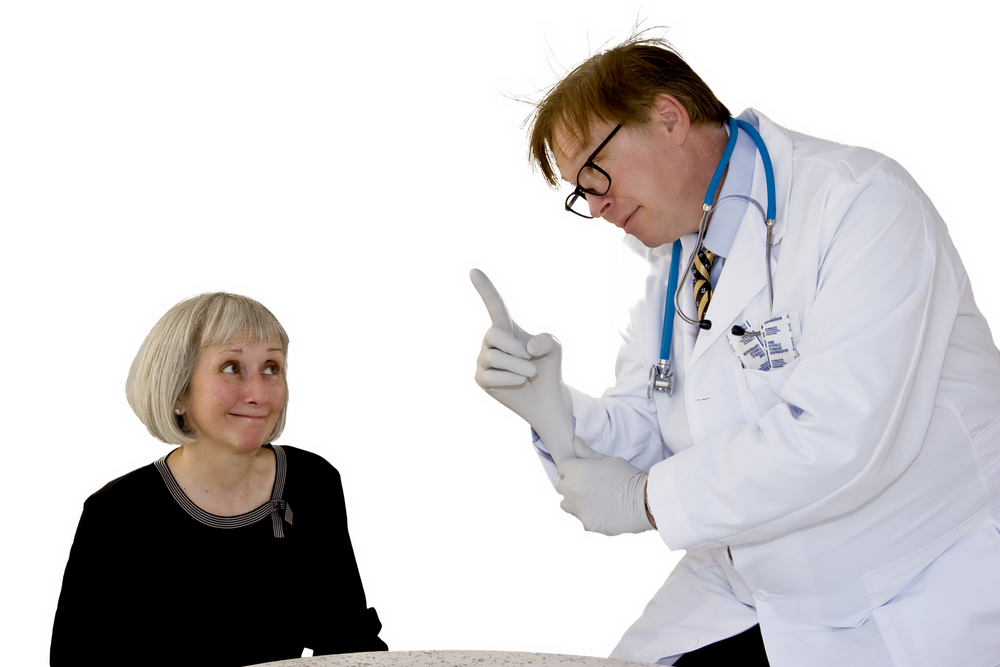1 in 10 Smokers Keep the Habit Secret from Doctors

About one in 10 smokers say they don't reveal to their doctors that they light up, according to a new survey.
This could equate to more than 6 million smokers in the United States, the researchers said.
The findings are important because health care providers "play a critical role in reaching smokers with appropriate messages and resources for quitting," said Cheryl G. Healton, president and chief executive officer of Legacy, the organization that conducted the study, which advocates prevention of youth smoking and helping people to quit.
"It becomes a missed public health opportunity if [smokers] do not talk to doctors and nurses about smoking and quitting," Healton said.
The reluctance of some smokers to discuss their smoking may be due to the increasing social stigma surrounding the habit. Of those who kept their smoking a secret from their doctors, 42 percent said it was because they felt ashamed, according to the survey.
Increased public health efforts to ban smoking in public places and create smoke-free workplaces may unintentionally lead smokers to feel marginalized, and less willing to discuss smoking with their physicians, Healton said.
Doctors should be aware of this problem, and be provided with tools to help them better communicate with their patients about smoking cessation, the researchers said.
Sign up for the Live Science daily newsletter now
Get the world’s most fascinating discoveries delivered straight to your inbox.
Smoking stigma
The findings are based on a nationally representative survey (completed online) of 3,146 smokers or former smokers in the United States.
- Eighty-seven percent said they inform their health care provider about their habit, while 13 percent said they did not.
- Smokers who kept their smoking a secret from their doctor were more likely to be light smokers, and to have tried to quit in the last 30 days, compared to those who did admit their habit.
- Fifty-three percent of all smokers said they feel comfortable talking about their smoking, but just 24 percent sought help from their health care provider during their last attempt to quit.
- Two-thirds of those who said they did not disclose their smoking status to their health care provider said they did not want to be lectured about their smoking.
- More than half of smokers (53 percent) perceived medium to high levels of stigma related to being a smoker. Thirty-five percent of smokers kept their smoking secret from their health care provider said they perceived high levels of stigma, compared with 14 percent of those who informed their provider.
Speaking to patients
Dr. Len Horovitz, a pulmonary specialist at Lenox Hill Hospital in N.Y., said sometimes smokers don't speak with their doctors about their smoking because doctors simply don't ask.
"The doctor has to ask about smoking history," Horovitz said. And if the patient doesn't tell the truth, "you can often smell it on their clothes or their breath, and so you have to confront them," Horovitz said. "It's the physician's job to elicit this from the patient," he said.
Horovitz said he recommends that doctors set a date for smokers to quit, and when that date arrives, ask whether they've cut down, or need some help.
Legacy has created guidelines that Healton said may help health care providers conduct conversations about smoking and quitting. The guidelines advise doctors to ask every patient if they smoke, and to be positive and encouraging when advising smokers to quit.
"This initiative aims to educate physicians and nurse practitioners to broach the subject proactively, without lecturing or judgment," Healton said.
The survey was funded in part by the pharmaceutical company Pfizer.
Pass it on: About 6 million smokers in the United States keep their habit a secret from their doctors.
Follow MyHealthNewsDaily staff writer Rachael Rettner on Twitter @RachaelRettner. Find us on Facebook.

Rachael is a Live Science contributor, and was a former channel editor and senior writer for Live Science between 2010 and 2022. She has a master's degree in journalism from New York University's Science, Health and Environmental Reporting Program. She also holds a B.S. in molecular biology and an M.S. in biology from the University of California, San Diego. Her work has appeared in Scienceline, The Washington Post and Scientific American.









